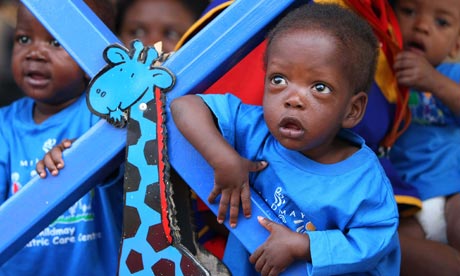As many as 200,000 children are dying unnecessarily of AIDS each year in Asia and Africa because of the ignorance and stigma surrounding HIV, the virus that causes the illness.
Even though HIV is now classified as a manageable chronic illness, these children are being shunned and literally left to die on the street or in orphanages.
Some of these children are being adopted by families in other countries.
Without this, they would not survive.
Most industrialised nations have removed immigration restrictions on people living with HIV, precisely because the condition is so manageable.
Medications are extremely effective.
HIV-positive people live long and healthy lives and pose no risk to the general community unless engaged in a small number of hazardous practices – unprotected sex and sharing needles and syringes when injecting drugs.
Australia, though, is one of only a few Western nations – Canada and New Zealand are others – that still have immigration barriers against HIV-positive people.
A waiver does exist in certain circumstances, but it is devilishly difficult to organise.
Families here who want to adopt an HIV-positive child are unable to do so unless they go through a long, elaborate process – or somehow circumvent the bureaucratic and legal barriers.
Today’s guest in The Zone is determined to change that.
Neen Weir is the founder of SuperKidsGlobal, a web-based initiative to help educate people about HIV and bring attention to these children, often overlooked for adoption.
A recent interdepartmental report to the federal government found an ”exceptionally low” number of overseas childen with special needs are adopted by families here in Australia.
Prime Minister Tony Abbott says he wants to make it ”much, much easier” to adopt such children, but Weir says there are few if any signs such long overdue change will be coming anytime soon. Continue reading
Sources
- The Age
- Image: The Guardian
- The full transcript of the interview referred to above can be found in The Zone
